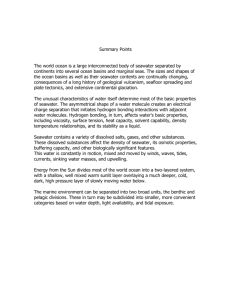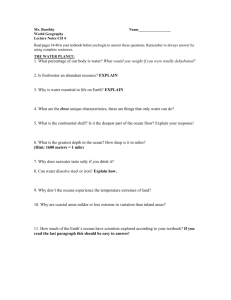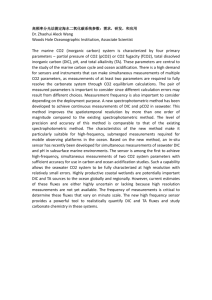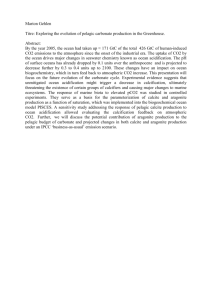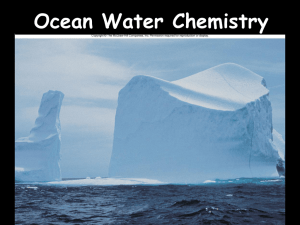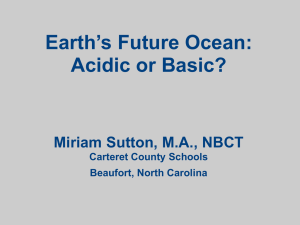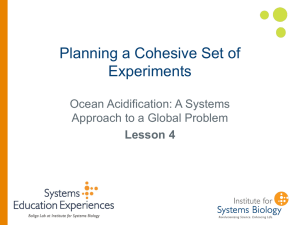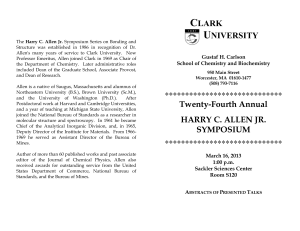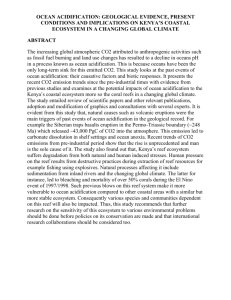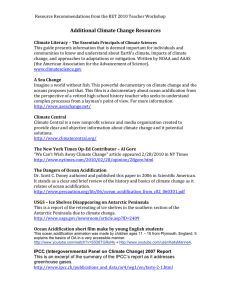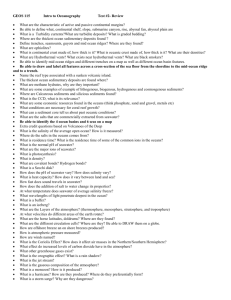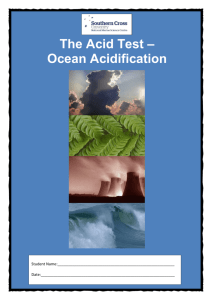Cruise to investigate impacts of ocean acidification on the surface
advertisement
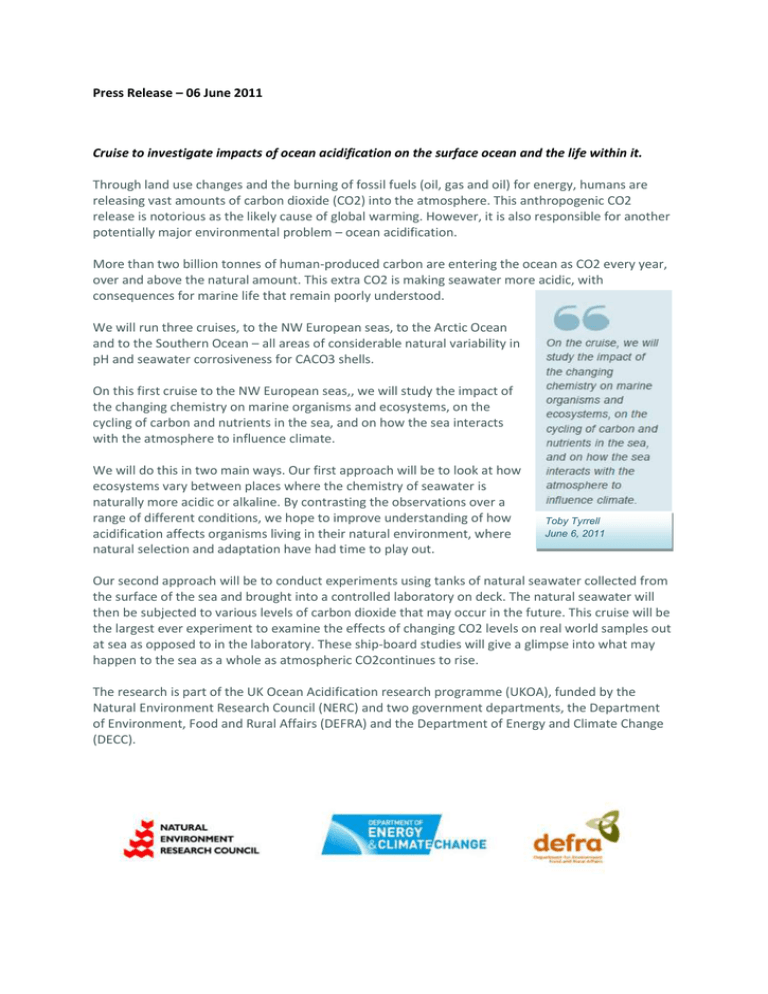
Press Release – 06 June 2011 Cruise to investigate impacts of ocean acidification on the surface ocean and the life within it. Through land use changes and the burning of fossil fuels (oil, gas and oil) for energy, humans are releasing vast amounts of carbon dioxide (CO2) into the atmosphere. This anthropogenic CO2 release is notorious as the likely cause of global warming. However, it is also responsible for another potentially major environmental problem – ocean acidification. More than two billion tonnes of human-produced carbon are entering the ocean as CO2 every year, over and above the natural amount. This extra CO2 is making seawater more acidic, with consequences for marine life that remain poorly understood. We will run three cruises, to the NW European seas, to the Arctic Ocean and to the Southern Ocean – all areas of considerable natural variability in pH and seawater corrosiveness for CACO3 shells. On this first cruise to the NW European seas,, we will study the impact of the changing chemistry on marine organisms and ecosystems, on the cycling of carbon and nutrients in the sea, and on how the sea interacts with the atmosphere to influence climate. We will do this in two main ways. Our first approach will be to look at how ecosystems vary between places where the chemistry of seawater is naturally more acidic or alkaline. By contrasting the observations over a range of different conditions, we hope to improve understanding of how acidification affects organisms living in their natural environment, where natural selection and adaptation have had time to play out. Toby Tyrrell June 6, 2011 Our second approach will be to conduct experiments using tanks of natural seawater collected from the surface of the sea and brought into a controlled laboratory on deck. The natural seawater will then be subjected to various levels of carbon dioxide that may occur in the future. This cruise will be the largest ever experiment to examine the effects of changing CO2 levels on real world samples out at sea as opposed to in the laboratory. These ship-board studies will give a glimpse into what may happen to the sea as a whole as atmospheric CO2continues to rise. The research is part of the UK Ocean Acidification research programme (UKOA), funded by the Natural Environment Research Council (NERC) and two government departments, the Department of Environment, Food and Rural Affairs (DEFRA) and the Department of Energy and Climate Change (DECC).
